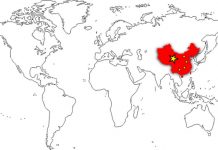Introduction
The conflict between Russia and Ukraine has been a highly contentious issue that has garnered international attention. The Russian war on Ukraine, which began in 2014 has had far-reaching consequences for both countries and the global geopolitical landscape. The conflict has had a devastating impact on the people of Ukraine. It has resulted in the loss of lives, displacement of civilians, damage to infrastructure, and economic hardship.
The Russian war on Ukraine has had significant implications for both countries and the international community. It has strained diplomatic relations, resulted in economic sanctions, caused human suffering, and created a heightened sense of insecurity in the region. There have been multiple attempts at peace negotiations, including the Minsk agreements. However, these negotiations have faced challenges, and the conflict remains unresolved.
The international community has played a crucial role in addressing the conflict. Countries have provided humanitarian aid, economic support, and diplomatic pressure to encourage a peaceful resolution. The possibility of escalation into a larger conflict is a concern for the international community. Efforts are being made to prevent further escalation and find a peaceful resolution.
What sparked the Russian War on Ukraine?
The Russian war on Ukraine was triggered by a series of events that unfolded in early 2014. It started with the Euromaidan protests in Ukraine, which called for closer ties with the European Union and the ousting of then-President Viktor Yanukovych. As the protests intensified, Yanukovych fled the country, leading to a political vacuum and a power struggle within Ukraine.
The Annexation of Crimea
One of the key turning points in the conflict was Russia’s annexation of Crimea in March 2014. Following Yanukovych’s ousting, Russian forces swiftly occupied the region, culminating in a controversial referendum that resulted in Crimea’s integration into the Russian Federation. This move was widely condemned by the international community, with many countries viewing it as a violation of Ukraine’s sovereignty.

The Donetsk and Luhansk Conflict
Simultaneously with the annexation of Crimea, pro-Russian separatist movements emerged in eastern Ukraine, particularly in the Donetsk and Luhansk regions. These separatist groups, supported by Russia, declared independence and engaged in armed conflict with the Ukrainian government. The conflict in eastern Ukraine has resulted in significant casualties and the displacement of thousands of people.
International Response and Sanctions
The international community has responded to the Russian war on Ukraine with a range of measures, including economic sanctions against Russia. These sanctions were imposed to exert pressure on Russia to de-escalate the conflict and respect Ukraine’s territorial integrity. However, finding a resolution to the conflict has proven challenging, with peace negotiations often stalling and sporadic outbreaks of violence occurring.
What are the different perspectives on the Russian War in Ukraine?
The Ukrainian Perspective
From the Ukrainian perspective, the Russian war on Ukraine is seen as a flagrant violation of their sovereignty and territorial integrity. Ukraine views Russia as an aggressor and seeks international support to counter Russian influence. The conflict has united Ukrainians in their determination to defend their country’s independence.
The Russian Perspective
Russia, on the other hand, argues that it is protecting the rights of Russian-speaking populations in Ukraine and maintaining stability in the region. Russia claims that it is not an aggressor but rather a defender of its interests and the interests of ethnic Russians living in Ukraine.

The International Perspective
The international community has expressed widespread concern over the conflict and has condemned Russia’s actions. Many countries, including the United States and European Union member states, have imposed sanctions on Russia and have provided military and economic support to Ukraine. The international community has called for a peaceful resolution through diplomatic negotiations.
Conclusion
The Russian war on Ukraine has had far-reaching consequences and has left an indelible mark on both countries. The conflict has sparked international condemnation and strained diplomatic relations. Efforts to find a peaceful resolution continue, but the path to lasting peace remains uncertain. Resolving the conflict requires sustained diplomatic efforts, adherence to international law, and a commitment from all parties involved to find a mutually acceptable solution. As the world watches, the hope remains that a resolution can be reached, bringing an end to the suffering and ensuring a stable future for Ukraine and its people.









